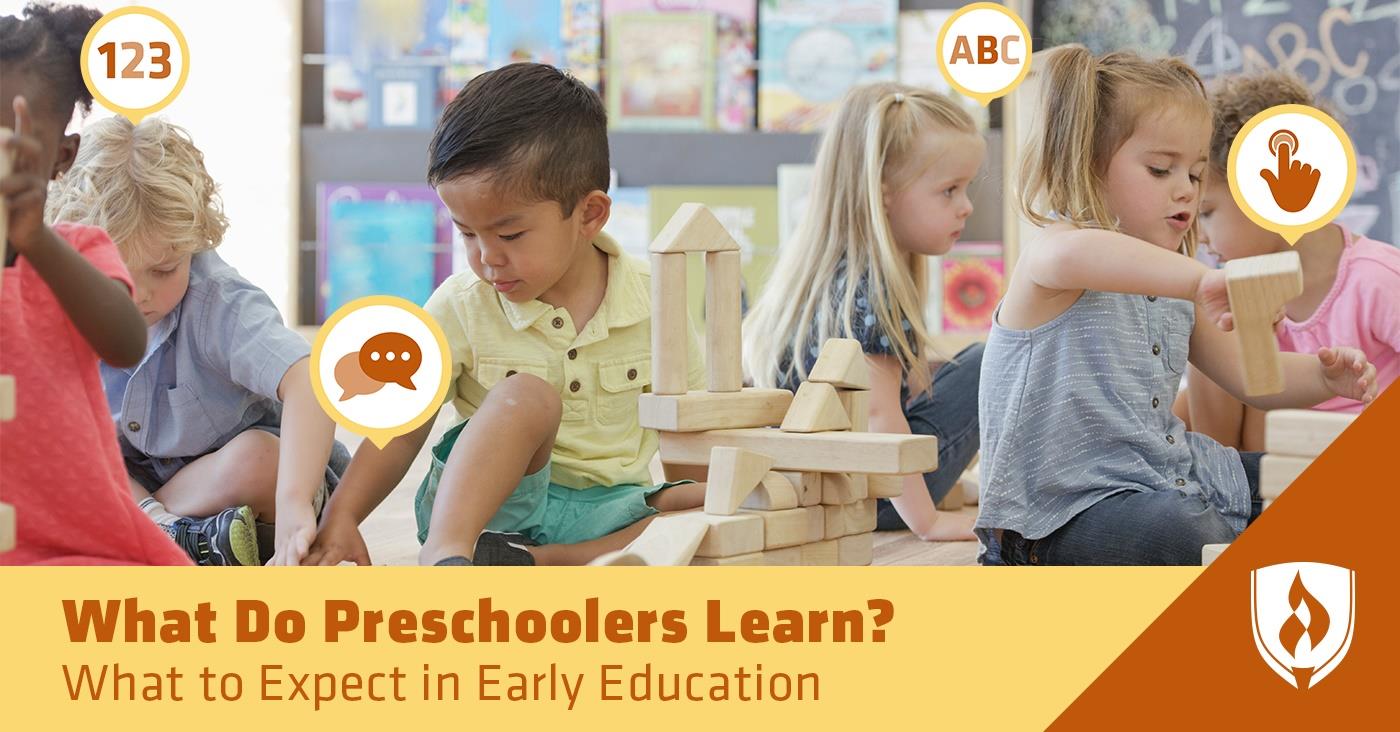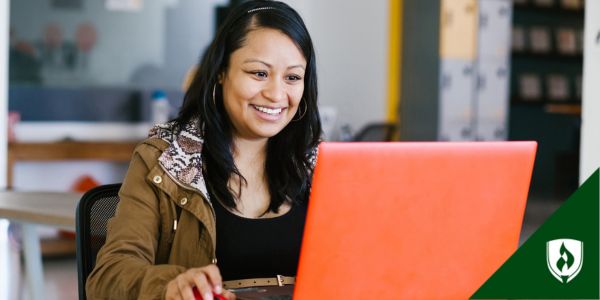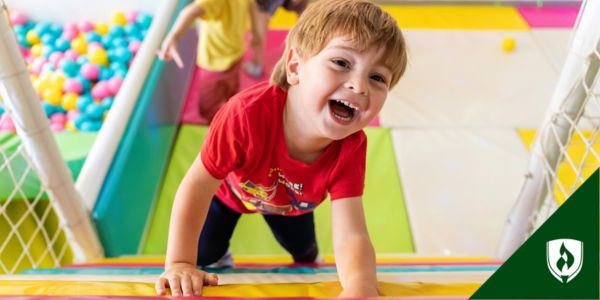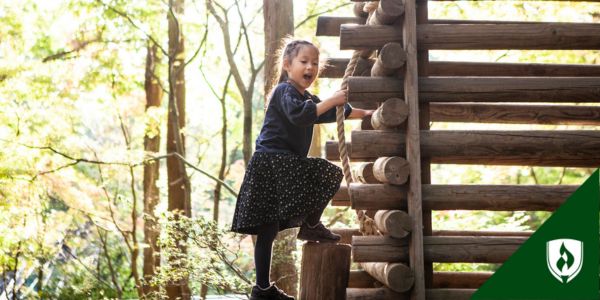
If you have a little one, you’ve probably heard a lot of talk about how important preschool is. While you don’t doubt that fact, you’re still probably a little curious about what preschoolers actually learn. After all, it’s probably been more than a few years since your own first foray into formal education.
So, what do preschoolers learn exactly? A cynical first glance might make you think kids are just getting a first-class lesson on sitting in circles and singing songs, but there’s a lot more going on than meets the eye. Preschool offers a unique blend of academic, physical, emotional and social benefits to young children.
We’ve asked early childhood education experts to help outline some of the key focus areas and abilities your child will develop in a preschool program.
The pillars of preschool learning
Preschoolers are going through an incredible period of growth and learning—and it shows up in several different ways. The lessons these little ones are learning span far beyond just crayons and finger paints. To help paint a more accurate portrait, we outlined five important ways preschoolers learn and grow.
Learning through play
Though every preschool is different in its teaching style and curriculum—for example, a Montessori program will vastly differ from a more traditional school—it’s a given that preschool children will learn through playing games. The broader goal of play-based learning is to prepare children for school in a secure, age-appropriate environment, so they can achieve the milestones they need to succeed later on in life.
“Preschool is child-directed and hands-on with ample opportunities to allow the children to explore and discover what interests them,” says preschool intervention specialist Alexa Davey. “From the outside, it may look like just play, but the students develop foundational skills that they build and carry throughout the rest of their lives.”
Play is an excellent way to develop baseline skills we all use in life. Through play, children learn to navigate the rules of games, communicate, share and work together.
Learning language and math
You don’t need to be an early education expert to know that children aged three-to-five see explosive growth in their vocabulary skills—and that preschool can be a big help in this regard. Literacy gains are one of the more obvious and immediate benefits of preschool learning. This is because preschool is considered a “language-rich” environment, where students learn vocabulary and language skills in conversations during activities.
Along the same lines, children will gain an early foundation for math in their preschool years. Preschool children will often play matching, sorting and counting games that help them understand foundational math concepts like categories, sequences and patterns.
Learning motor skills
Because much of preschool is play-based, children have the chance to explore how to use their bodies and senses productively, whether in the classroom or outdoors on the playground. For example, in preschool, your child might learn to thread beads or cut with scissors, both of which can help develop fine motor skills. On the other hand, physical play time develops and strengthens gross motor skills—and it doesn’t hurt that physical activity both promotes overall physical health and burns your preschooler’s energy.
Learning how to learn
Though math and language are important skills to learn, Davey said preschool is about more than academic milestones. Children’s experience in preschool has just as much weight in preparing them for kindergarten as their actual accomplishments. “Besides the basic pre-academic skills, such as letters/sounds, numbers, shapes, colors and counting, preschool students are taught the foundations of learning—initiative, curiosity, planning, reflecting, creativity and innovative thinking,” she said.
At its core, the preschool environment is valuable, because it teaches kids how to learn. “The foundation of learning helps students develop socially and academically while also creating a love for learning that is continuously built as they go to kindergarten and beyond.”
Learning social skills
In addition to providing early framework for lifelong learning, preschool also gives children the opportunity to engage in peer and adult relationships and develop social skills, perhaps for the first time. “In preschool, we also support social development by building and encouraging positive relationships with familiar adults and peers,” Davey said.
Beyond learning how to conduct simple conversation, your child will likely grow in confidence in preschool. “We aim to teach problem solving strategies, social competence and self-regulation skills to help students grow into socially confident students,” she continued.
Learning beyond what meets the eye
Equally valuable to a preschool’s curriculum are the “real-time” lessons that children don’t even know they are learning. For example, though children don’t know it, the actual structure of preschool helps them understand how to function amidst rules and routines.
Preschool is a safe environment for children to grow more independent—they make choices, learn to try new things and care for themselves. This time spent building up their own abilities helps children grow in confidence and learn the lifelong skill of navigating a structured world. It might seem simple, but learning how to behave outside of a parent’s supervision is a huge step.
The strong case for early childhood education programs
Preschool learning might seem pretty simple—but that’s the point! It is a foundational experience that children build upon as they grow. This period in child development sets the stage for a lifetime of learning and future success. If you’d like more insight on the value of early childhood education, visit our article, “4 Reasons You Can’t Ignore the Importance of Early Childhood Education.”




